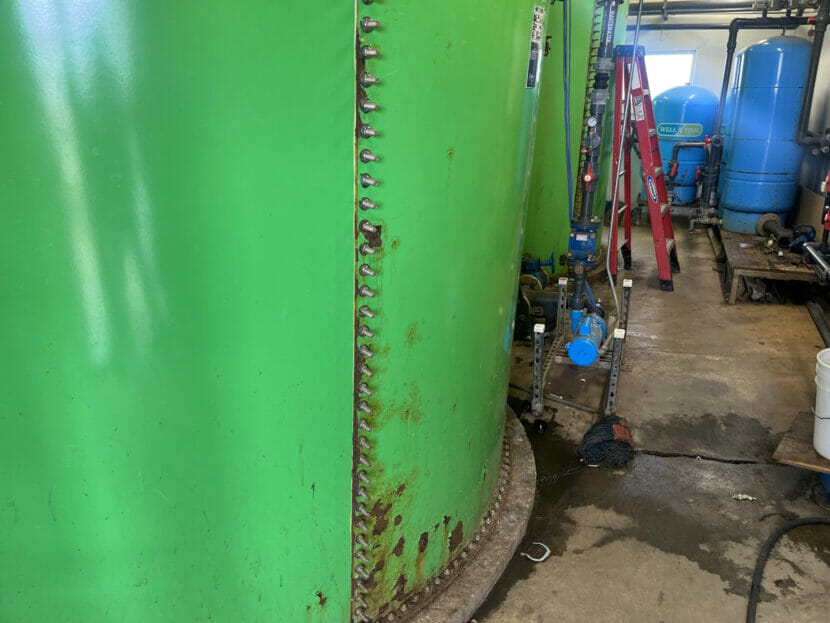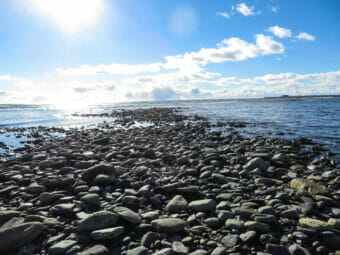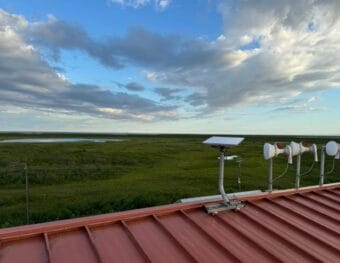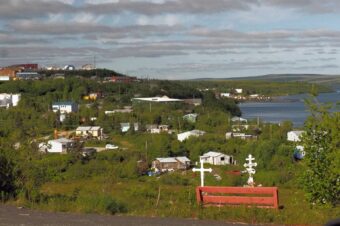
President Joe Biden’s Infrastructure Investment and Jobs Act dedicated billions of federal dollars to plan and build better water and waste systems. In rural Alaska, communities with some of the least-developed water and sewage pipe systems in the country, the state promised to match those funds.
But in a letter to the state, the Bethel’s city government challenged the state’s method for evaluating which communities are eligible.
Bethel leaders are asking whether the state is making a good-faith effort to financially support sustainable water and sewer services in rural Alaska. They ask whether the only thing the state is paying is lip service.
In a letter, Bethel City Attorney Libby Bakalar says those funds are buried in a “bureaucratic maze.”
“So the funding for these water projects comes from the EPA, and it goes to the state, and the state has to manage those funds,” said Bethel City Manager Pete Williams. “And so the state comes up with how they’re going to qualify somebody for the funding. And we’re kind of saying that it’s more of a stumbling block to obtain the funding than it is helpful to obtain it.”
Unlike the vast majority of the U.S., many communities in rural Alaska have few or no piped water and sewage facilities, primarily because of the cost. Bethel has some of the most expensive utility costs in the country. But the city points out, the state’s scoring system punishes communities that don’t already have piped infrastructure. Communities without pipes scored on average 22 points lower than piped communities.
“You know, I mean, I think there has to be a better way. I mean, you can’t expect somebody out in Timbuktu to do the exactly the same as somebody (in) downtown Seattle. So I mean, there has to be some give and take here,” Williams said.
This year, Bethel didn’t qualify to apply for grant money because it didn’t pass one of the two metrics for the Rural Utility Business Program by one point. That single point meant the city couldn’t apply for a $19 million grant. This score was surprising in part because, according to the letter, the city submitted nearly identical documentation last year and scored 28 points higher. The city contends this is a flaw with the scoring system.
“What’s required has been sometimes said to be a moving target.” Williams said.
While Bethel submitted the high volume of information required, it was penalized because it hadn’t included some of the information on the budget correctly. Williams said it bothers him because city staff weren’t told this was an issue until months later – and all of its budget records are available online. He said a lot of other communities fail to make it through the system too.
“There’s 110 communities that didn’t meet this score,” Williams said. “So in the end, the money that was expected to be used – you know, the federal government gives you the money, they say, ‘Hey, we’re going to build some pipes for water and sewer projects’ – and then it doesn’t trickle down to those that need it. And it’s that simple.”
The letter also points out the metrics don’t account for local factors like the financial impact of subsistence living, the subsidies communities already benefit from, and the willingness of customers to pay. In any case, the cost of construction has been high, and these grants only pay for new projects, which Bethel has a hard time affording.
“These projects go out to bid and they come back, they’re three times the estimate,” Williams said.
Managing water and sewage effectively isn’t a problem that’s going to go away. Piped infrastructure is the single most important tool to improve health outcomes in rural Alaska, and to meet the Safe Drinking Water Act.
“To stay healthy, it’s been proven that it’s very, very important,” He said. “You know, I know out here when I first came here in the early 80s, there was an epidemic of hepatitis B, and that had a direct correlation with honey buckets.”
The city’s letter requests that the state change course, and deliver on the infrastructure investment they’ve promised. They ask that Bethel be made eligible to apply for funding immediately, and that the state remove eligibility metrics gatekeeping grants, which, they contend, perpetuate long-standing health disparities in Bethel and the surrounding region.
Staff from the state Department of Environmental Conservation say they’re working on a response to the letter.



